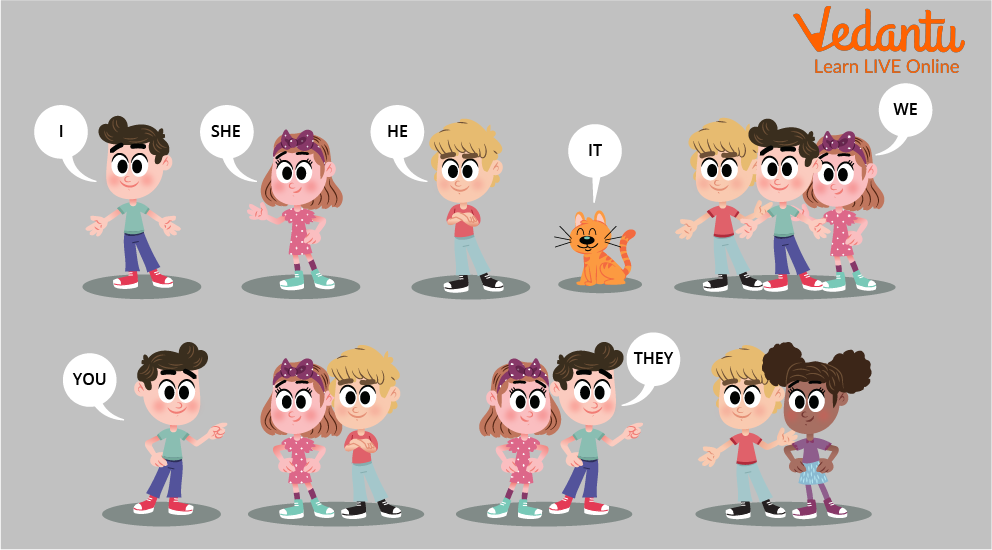Key Pronoun Concepts and Practice Questions for Class 8 CBSE Exams
FAQs on Comprehensive Guide to Pronouns in Class 8 English Grammar (2025-26)
1. What are the most frequently asked types of questions on Pronouns for the Class 8 English exam as per the 2025-26 syllabus?
For the Class 8 English exam, the important questions on pronouns typically focus on application and identification. You can expect the following formats, usually carrying 1-2 marks each:
Fill in the blanks with the correct form of a pronoun (personal, relative, or possessive).
Identifying the type of pronoun used in a given sentence (e.g., is 'himself' reflexive or emphatic?).
Replacing a noun with an appropriate pronoun to avoid repetition.
Error correction where an incorrect pronoun is used in a sentence.
2. What are some expected questions on Relative Pronouns (who, whom, which, that) for the Class 8 exam?
Questions on relative pronouns are highly expected as they test a student's understanding of sentence structure. Important examples include:
Combining two sentences using a suitable relative pronoun. For example: "The man was caught. He stole the watch." Answer: "The man who stole the watch was caught."
Choosing between who (for subjects) and whom (for objects). Example: "The student, whom the principal praised, is my friend."
Using which for animals and things, and that for a specific person or thing.
3. How can a student differentiate between a Reflexive Pronoun and an Emphatic Pronoun to avoid losing marks?
This is a key distinction and a frequently asked question. To avoid errors, remember this rule: A Reflexive Pronoun is essential to the sentence's meaning as it is the object of the verb (e.g., "She prepared herself for the test."). An Emphatic Pronoun is used only for emphasis and can be removed without changing the sentence's basic meaning (e.g., "She herself baked the cake."). In an exam, try removing the pronoun; if the sentence still makes sense, it is emphatic.
4. What is a common mistake students make with Indefinite Pronouns, and how can it be avoided for full marks?
A very common error that costs marks is related to subject-verb agreement with indefinite pronouns. Most indefinite pronouns like 'everybody', 'anyone', 'each', and 'nobody' are singular and require a singular verb. For example, it is correct to say, "Everybody is waiting," not "Everybody are waiting." For the exam, always double-check that the verb matches the singular indefinite pronoun to secure full marks.
5. Why is mastering pronouns important for scoring well in the overall Class 8 English paper, not just the grammar section?
Mastering pronouns is crucial because it directly impacts the quality of your writing in sections like Essay Writing, Letter Writing, and Story Writing. Correct pronoun usage prevents awkward repetition of nouns, making your writing more fluent and clear. Using pronouns like 'it', 'they', and 'which' correctly demonstrates a strong command of English, which helps in scoring higher marks for expression and coherence, which are important marking criteria.
6. How are questions on Possessive Pronouns and Possessive Adjectives framed in exams?
Exam questions often test the difference between these two. You might get a fill-in-the-blank question like: "That bag is ____ (my/mine)." To answer correctly, remember:
A Possessive Adjective (my, your, his, her, its, our, their) comes before a noun. Example: "This is my book."
A Possessive Pronoun (mine, yours, his, hers, ours, theirs) replaces the noun and stands alone. Example: "This book is mine."



























